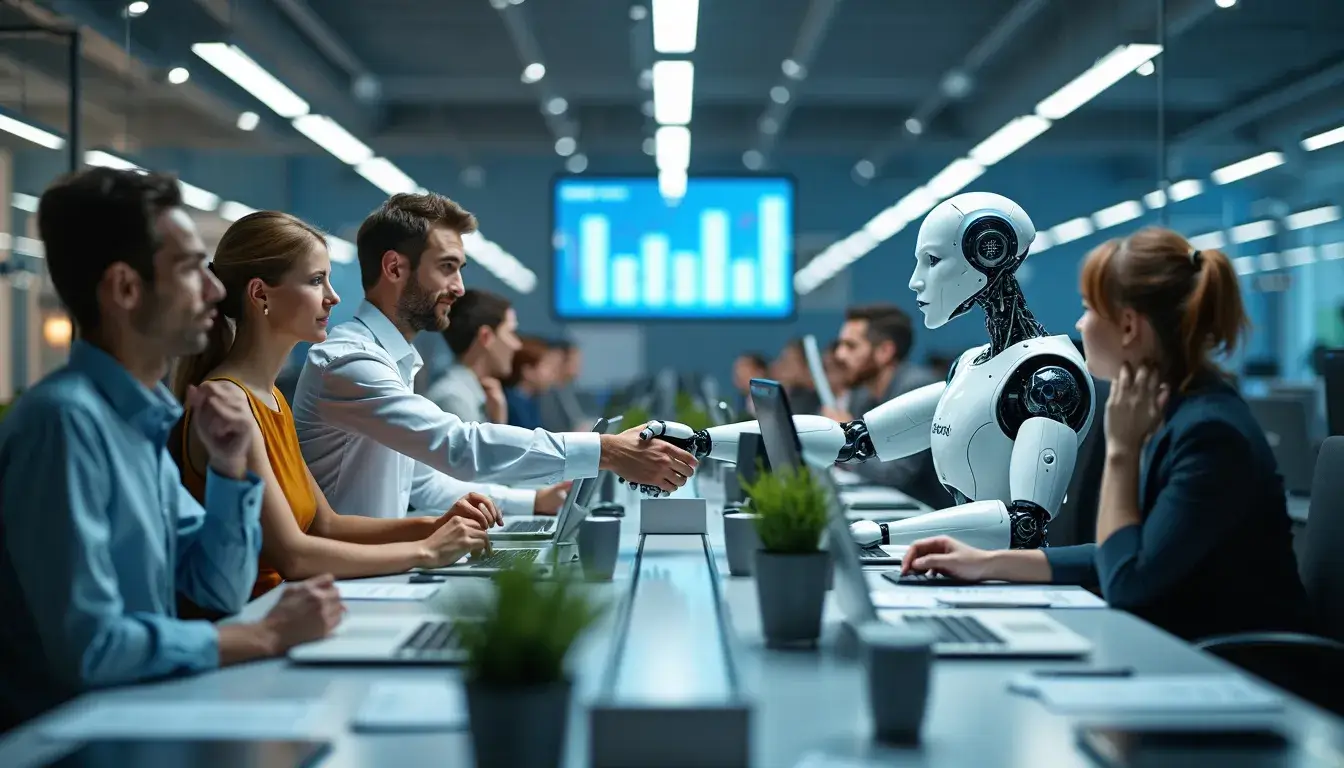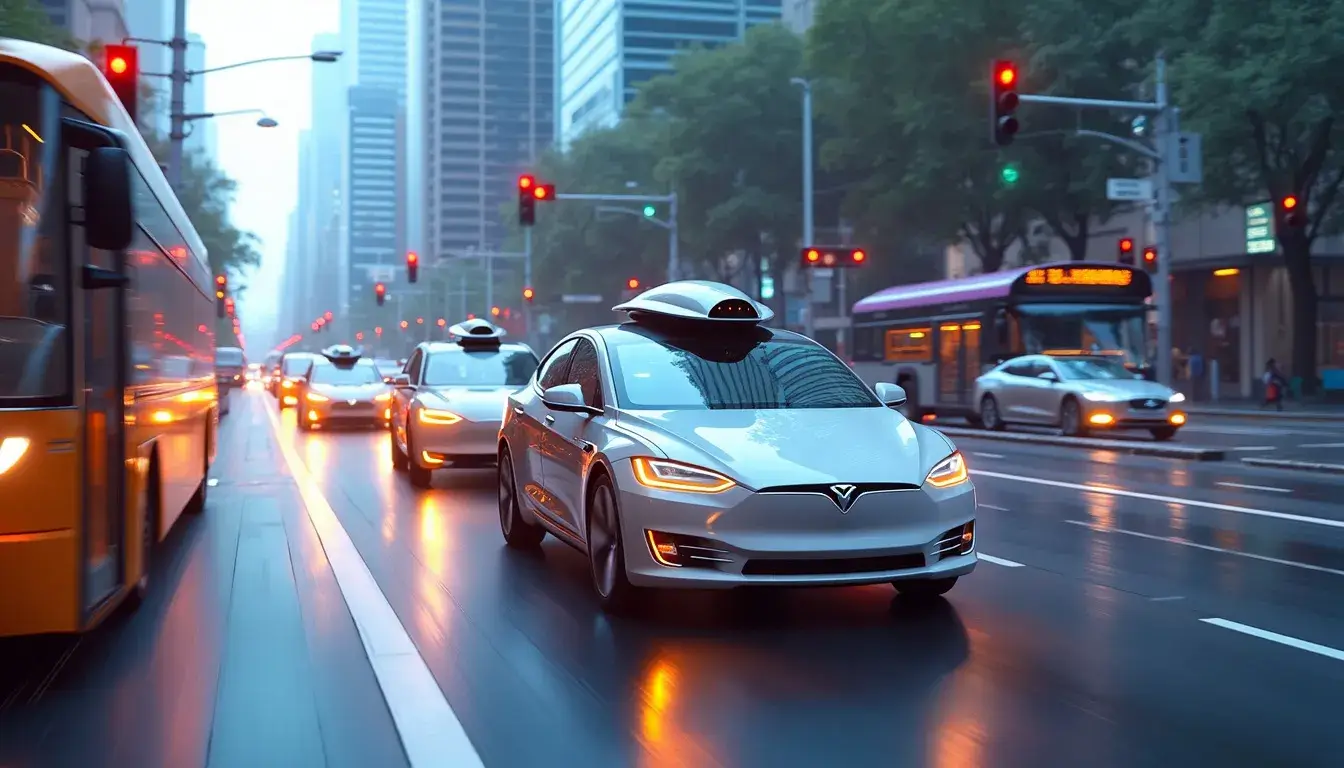The Changing Workforce: Job Opportunities in the Age of AI


Introduction to AI and Automation
Artificial Intelligence (AI) and automation are transformative technologies that have rapidly evolved and integrated into various facets of daily life. AI refers to the simulation of human intelligence in machines programmed to think and learn like humans. Automation, on the other hand, involves using technology to perform tasks with minimal human intervention. Together, these concepts are reshaping industries, enhancing productivity, and improving quality of life.
The history of AI can be traced back to the mid-20th century, when pioneers like Alan Turing laid the groundwork for machine learning and computational intelligence. Over the decades, significant advancements have emerged, spurred by the accumulation of data, the increase in computational power, and the development of sophisticated algorithms. These breakthroughs have allowed machines to not only execute predefined tasks but also adapt, learn from experiences, and make autonomous decisions.
In today’s world, AI and automation are increasingly relevant as they permeate daily routines in numerous sectors. From smart home devices that optimize energy use to AI-driven customer service chatbots that enhance user experience, these technologies are becoming ubiquitous. Industries such as healthcare, finance, manufacturing, and transportation are harnessing AI and automation to streamline operations, reduce costs, and enhance safety.
Furthermore, the advancement of these technologies has encouraged a shift in workforce dynamics. While concerns regarding job displacement persist, the potential for creating new job opportunities in tech, design, and AI oversight is significant. As companies and individuals embrace these innovations, understanding their implications becomes crucial for leveraging their benefits while addressing potential challenges effectively. Ultimately, AI and automation stand at the forefront of a new era, fundamentally altering how we approach tasks in everyday life.
AI in Household Activities


AI in Household Activities
Artificial Intelligence (AI) is increasingly becoming an integral part of everyday domestic life, revolutionizing common household activities such as cooking, cleaning, and grocery shopping. The implementation of smart technology has simplified these tasks, making them more efficient and less time-consuming for homeowners. For example, various AI-powered kitchen appliances now assist individuals in preparing meals with enhanced precision and convenience. Smart ovens can suggest recipes based on available ingredients and adjust cooking temperatures and times accordingly. This not only helps to streamline the cooking process but also encourages users to experiment with new culinary options.
Moreover, AI has made significant strides in the domain of home cleaning. Robotic vacuum cleaners equipped with sophisticated intelligence can navigate intricate floor plans, intelligently avoiding obstacles. These devices can be programmed to operate at specific times, ensuring that the home remains clean with minimal human intervention. Smart home systems also extend to cleaning, enabling users to schedule and monitor the cleaning process remotely, providing an added layer of ease and convenience.
In addition, grocery shopping has been transformed by AI technologies. Numerous grocery delivery services now utilize intelligent algorithms to predict consumer preferences, facilitating a more personalized shopping experience. These platforms allow customers to create shopping lists remotely and receive tailored product suggestions, ensuring that they acquire only the most relevant items. This innovation significantly reduces the time spent on grocery shopping, allowing households to focus on other essential tasks.
Through the integration of AI in household activities, individuals can enjoy an enhanced level of convenience. By reducing time spent on mundane chores, AI empowers homeowners to allocate more time to family, leisure pursuits, or self-care, thereby positively impacting their overall quality of life.
AI in Personal Finance Management
The integration of artificial intelligence in personal finance management has brought about significant transformation, enabling individuals to manage their finances with enhanced efficiency and precision. AI-driven tools and applications are proving to be invaluable resources for effective budgeting, investment, and financial planning.
One of the most prominent implementations of AI in personal finance management is through budgeting apps. These applications harness machine learning algorithms to analyze users’ financial behavior, categorizing spending patterns, and providing personalized budgeting recommendations. By automating the tracking of expenses, such applications empower users to gain valuable insights into their financial habits, allowing them to allocate their resources more effectively. For instance, some popular budgeting apps use AI to send alerts when a user is nearing their spending limits, aiding in more disciplined financial behavior.
Furthermore, AI-driven investment platforms are reshaping the landscape of wealth management. These platforms utilize AI analytics to assess market trends and forecast potential investment opportunities. Investors can benefit from data-driven insights, allowing them to make informed decisions rather than relying solely on traditional methods. Some of these platforms also offer robo-advisory services, where AI algorithms create personalized investment portfolios based on the user’s risk tolerance and financial goals, streamlining the investment process.
Additionally, chatbots equipped with AI technology are revolutionizing the way individuals seek financial advice. These virtual assistants provide immediate assistance, answering a variety of financial queries and offering recommendations. They are accessible around the clock, making financial advice more available than ever. As users interact with these chatbots, they receive personalized information and support, fostering greater confidence in managing their financial affairs.
In conclusion, AI technologies are enhancing personal finance management by offering tools that simplify budgeting, optimize investments, and provide instant access to financial advice. The automation of these tasks allows individuals to take charge of their financial health, leading to improved financial outcomes in daily life.
AI and Automation in Transportation


Automation in Transportation
The advent of artificial intelligence (AI) and automation has significantly transformed the transportation industry, presenting new opportunities and addressing age-old challenges. One of the most notable developments in this domain is the rise of self-driving cars. These autonomous vehicles leverage AI algorithms to analyze vast amounts of data from sensors and cameras, enabling them to navigate complex environments with minimal human intervention. This technological leap not only promises enhanced safety through reduced human error but also aims to reduce traffic accidents substantially.
Moreover, intelligent traffic management systems have emerged as a crucial application of AI in urban transportation. These systems utilize real-time data analytics and predictive algorithms to optimize traffic flow, signal timings, and route planning. By efficiently managing congestion, they contribute to reduced travel times and lower vehicle emissions, thereby addressing environmental concerns. Cities incorporating such systems witness a decline in air pollution levels, benefiting public health and overall quality of life.
Ride-sharing platforms also epitomize the fusion of AI and automation in transportation. By analyzing user behavior and traffic patterns, these platforms enhance the efficiency of service delivery and minimize wait times. Furthermore, with the incorporation of AI, ride-sharing services can implement dynamic pricing models that reflect real-time demand, ensuring a sustainable business model while providing affordability to users.
While the potential benefits of AI in transportation are substantial, several challenges and regulatory considerations must be tackled. Issues such as public trust in autonomous vehicles, liability in case of accidents, and ethical dilemmas surrounding decision-making algorithms are critical areas for further exploration. As the industry evolves, a balanced approach that addresses these concerns while promoting innovation will be vital in ensuring the safe and effective integration of AI and automation in transportation systems.
AI in Healthcare Services
Artificial Intelligence (AI) has emerged as a transformative force in healthcare services, fundamentally reshaping how medical professionals deliver care and manage patient information. One of the pivotal applications of AI in this domain is diagnostics, where machine learning algorithms analyze medical images and data to assist in identifying diseases with remarkable accuracy. Tools such as IBM Watson Health leverage extensive databases to help radiologists detect anomalies in X-rays and MRIs, significantly enhancing the speed and precision of diagnoses.


AI Everywhere
Moreover, the advent of telemedicine has been accelerated by AI technologies, allowing healthcare providers to monitor patients remotely and deliver medical consultations over digital platforms. AI-driven chatbots can guide patients through preliminary assessments, capturing symptoms and directing individuals to appropriate healthcare resources. This not only improves access to care, particularly for those in remote areas, but also optimizes the time of healthcare professionals by filtering out unnecessary visits.
In addition to improving diagnostics and patient interaction, AI also plays a crucial role in robotic surgeries. Surgical robots, such as the da Vinci Surgical System, use AI algorithms to assist surgeons in performing intricate procedures with enhanced precision. These systems reduce the physical strain on the surgeon while minimizing the risk of complications for patients, resulting in faster recovery times and improved outcomes.
Administrative tasks within healthcare settings are also experiencing significant improvements through automation. AI applications streamline processes such as patient data management, appointment scheduling, and billing. By automating these repetitive tasks, healthcare staff can focus more on patient interaction and care, thus raising the overall efficiency of healthcare operations.
Overall, the integration of AI in healthcare services is paving the way for improved diagnostics, enhanced patient care, and streamlined administrative processes. These advancements not only elevate the standard of care but also contribute to better health outcomes for patients across various demographics.
Impact on the Workforce and Jobs


Imapct on the Workforce
The integration of artificial intelligence (AI) and automation into various industries is undeniably reshaping the workforce landscape. As organizations adopt these advanced technologies, a common concern arises: job displacement. Many workers fear that their roles may be rendered obsolete as machines and algorithms assume tasks traditionally performed by humans. This sense of unease, while understandable, overlooks a crucial aspect of the AI revolution— the emergence of new job opportunities.
While certain roles may diminish due to automation, AI also spurs growth in entirely new professions. For example, the demand for data analysts, AI specialists, and robotics technicians is rapidly increasing. These positions require a different set of skills, emphasizing the importance of adaptability within the workforce. Therefore, rather than strictly resulting in job loss, the transition towards automation necessitates a reevaluation of existing roles and the development of new ones. Furthermore, reskilling and upskilling current employees become essential strategies for organizations aiming to retain talent amid technological advancements.
The rapid pace of change in the job market highlights the need for a proactive approach to workforce planning. Companies and educational institutions alike must collaborate to prepare individuals for the evolving requirements of the automated economy. This preparation may involve tailored training programs that equip workers with the skills needed to thrive in a technology-driven environment. By investing in human capital, businesses can bridge the gap between workforce capabilities and market demands, ensuring workers remain competitive in a shifting landscape.
In conclusion, while concerns about job displacement due to AI and automation are valid, it is important to recognize the dual nature of these advancements. They not only threaten existing roles but also give rise to new opportunities, necessitating a commitment to reskill workers and adapt to a rapidly changing employment paradigm.
AI in Retail and Shopping
The retail sector has undergone a remarkable transformation due to the integration of artificial intelligence (AI) and automation technologies. One of the most significant impacts is the creation of personalized shopping experiences through the use of sophisticated recommendation algorithms. These algorithms analyze customer behavior, preferences, and purchase history to curate tailored product suggestions, driving both engagement and sales. For instance, online retailers such as Amazon utilize these algorithms not only to recommend products based on individual preferences but also to enhance the overall shopping experience, ensuring customers find items that meet their specific needs.
Moreover, AI-powered chatbots have become an integral part of the retail customer service ecosystem. These virtual assistants provide immediate support, answer queries, and facilitate smoother purchasing processes, making them indispensable in enhancing customer satisfaction. A notable case study is that of H&M, which implemented AI-driven chatbots across its platform, resulting in improved engagement rates and a significant reduction in customer service response times.
In addition to improving customer interaction, AI is streamlining operational efficiency within the retail sector. Automated checkout systems are becoming increasingly common. For example, retailers like Walmart are experimenting with AI-powered self-checkout solutions that can identify items accurately and process transactions quickly. This not only enhances the convenience for shoppers but also reduces labor costs and allows staff to focus on more strategic tasks.
The adoption of AI in logistics and inventory management is another area where retailers are witnessing substantial benefits. Retailers such as Zara have adopted machine learning algorithms to forecast demand accurately, ensuring that inventory levels align with consumer preferences, thus minimizing stockouts and overstock situations. Overall, the advancements in AI are not only transforming the retail landscape but are also setting new standards for customer engagement and operational efficiency.
Ethical Considerations and Challenges


Ethical Considerations and Challenges
The integration of artificial intelligence (AI) and automation into daily life introduces significant ethical dilemmas and challenges that must be addressed to ensure responsible innovation. One of the foremost concerns is data privacy. As AI systems often rely on vast amounts of personal data to function effectively, the risk of unauthorized access and misuse of this sensitive information becomes a pressing issue. Users must be informed about how their data is collected, stored, and utilized, fostering a culture of trust between technology developers and the public.
Another critical issue relates to algorithmic bias. AI systems are not immune to the biases present in the data used to train them. If the underlying data reflects societal prejudices, the algorithms are likely to replicate and even amplify these biases, leading to unfair treatment of individuals based on race, gender, or socio-economic status. For instance, biased algorithms could influence hiring processes, loan approvals, and law enforcement activities, ultimately impacting lives in profound ways. Addressing these biases requires a concerted effort from developers and users alike to ensure fairness and equity in AI applications.
Additionally, the need for transparency in AI decision-making processes cannot be overstated. The “black box” nature of many algorithms makes it challenging for stakeholders to understand how decisions are made. This lack of clarity can erode public trust and hinder accountability. As AI systems become more pervasive in critical areas such as healthcare and criminal justice, elucidating how these systems operate and arrive at conclusions becomes vital. By promoting transparency, developers can foster greater confidence in AI technologies while enabling individuals to question and challenge potentially erroneous or harmful decisions.
In summary, navigating the ethical landscape of AI and automation requires a multi-faceted approach that prioritizes data privacy, addresses algorithmic bias, and champions transparency. As technology continues to evolve, so too must our commitment to responsible and ethical practices in its application.
Future of AI and Automation in Daily Life
The future of artificial intelligence (AI) and automation in daily life holds immense potential to transform various aspects of human existence. As technology continues to evolve, AI is expected to become increasingly integrated into everyday tasks, enhancing efficiency and convenience. Emerging technologies such as machine learning, natural language processing, and computer vision are paving the way for innovative applications, which will affect various industries and personal routines.
One prominent area where AI is anticipated to make significant strides is within smart home technology. Devices powered by AI will learn individual preferences, anticipate needs, and optimize energy usage, contributing to a more efficient and sustainable living environment. For instance, smart assistants may integrate seamlessly with home appliances, allowing users to manage their household tasks through simple voice commands or personalized routines. This integration can streamline daily responsibilities, freeing up time for more meaningful interactions and activities.
Moreover, the healthcare sector is on the brink of a revolution fueled by AI and automation. Predictive analytics may enable healthcare providers to offer personalized treatment plans and early disease detection, ultimately enhancing patient outcomes. Robotics could assist in surgeries or rehabilitative therapies, demonstrating the growing reliance on automated systems in medical practices. Additionally, wearables equipped with AI could monitor health indicators in real-time, fostering proactive approaches to personal health management.
In the realm of transportation, autonomous vehicles are poised to redefine commuting. The anticipated adoption of self-driving cars promises to reduce traffic congestion and minimize accidents caused by human error. This technological advancement will not only reshape how individuals travel but also influence city planning and public transportation systems.
The continued advancement of AI and automation will inevitably reshape the nature of work as well. Repetitive tasks may become automated, allowing professionals to focus on more complex and creative endeavors. As these technologies evolve, they will redefine skill requirements in the workforce and necessitate a shift in educational approaches to prepare future generations for this dynamic landscape.
Ultimately, the trajectory of AI and automation in daily life appears robust and transformative. While challenges and ethical considerations will accompany these advancements, the potential for improved quality of life, increased efficiency, and novel experiences will undoubtedly underpin a future where AI continues to integrate meaningfully into our lives.
You can read more content on this topic here
Also know about AI Hom Security




